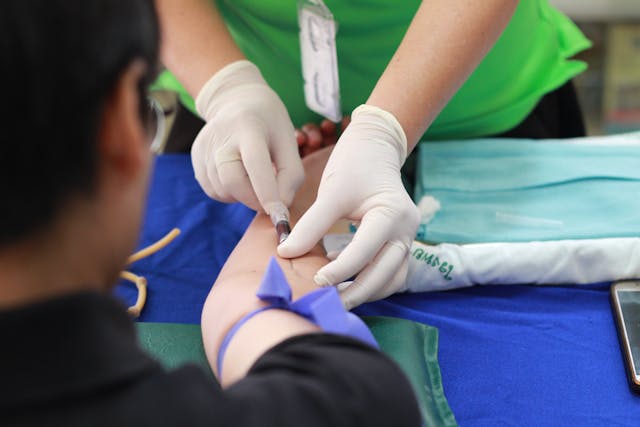12 Tech Breakthroughs in Healthcare
The healthcare industry is continually evolving, thanks to remarkable advancements in technology. These breakthroughs are revolutionizing patient care, improving outcomes, and streamlining operations. Here are twelve tech breakthroughs that are shaping the future of healthcare:
- Telemedicine
Telemedicine has made healthcare more accessible, allowing patients to consult with healthcare providers from the comfort of their homes. This technology has become indispensable, especially during the COVID-19 pandemic, reducing the need for in-person visits and minimizing exposure risks.
- Wearable Health Devices
Wearable devices like smartwatches and fitness trackers monitor vital signs, physical activity, and even sleep patterns. These devices provide real-time health data, empowering individuals to take control of their health and enabling healthcare providers to make informed decisions.
- Artificial Intelligence (AI) in Diagnostics
AI is transforming diagnostics by analyzing vast amounts of data to identify patterns and detect diseases at an early stage. AI-powered tools can diagnose conditions like cancer, heart disease, and neurological disorders with remarkable accuracy, leading to earlier and more effective treatments.
- Robotic Surgery
Robotic surgery offers precision and minimally invasive options for complex procedures. Surgeons can perform intricate operations with enhanced dexterity and control, resulting in shorter recovery times and reduced risk of complications for patients. This level of precision is especially important for a reconstructive plastic surgeon, who must restore both form and function with minimal scarring and optimal aesthetic results.
- 3D Printing
3D printing is revolutionizing the production of medical devices, prosthetics, and even human tissue. Customized implants and prosthetics can be created to fit patients perfectly, improving comfort and functionality. In the future, 3D printing may enable the creation of fully functional organs for transplantation.
- Blockchain for Health Records
Blockchain technology ensures the secure and transparent management of electronic health records (EHRs). By providing a tamper-proof system for storing and sharing patient data, blockchain enhances data security, patient privacy, and interoperability between healthcare providers.
- Gene Editing (CRISPR)
CRISPR technology allows for precise editing of the human genome, offering potential cures for genetic disorders. By targeting and modifying specific genes, researchers can develop treatments for diseases like cystic fibrosis, sickle cell anemia, and certain types of cancer.
- Virtual Reality (VR) in Therapy
Virtual reality is being used for pain management, physical therapy, and mental health treatments. VR can distract patients from pain, aid in rehabilitation exercises, and provide immersive environments for therapy, helping patients recover faster and more effectively.
- Nanomedicine
Nanotechnology involves the use of nanoparticles to deliver drugs directly to diseased cells, improving the efficacy and reducing the side effects of treatments. Nanomedicine holds promise for cancer therapy, targeted drug delivery, and regenerative medicine.
- Precision Medicine
Precision medicine tailors treatments to individual patients based on their genetic makeup, lifestyle, and environment. By understanding the unique factors that influence health, healthcare providers can develop personalized treatment plans that are more effective and have fewer side effects.
- Internet of Medical Things (IoMT)
IoMT connects medical devices and sensors to healthcare networks, enabling continuous monitoring and data collection. This connectivity allows for real-time tracking of patient health, early detection of issues, and timely interventions, improving overall patient care.
- Advanced Imaging Technologies
Innovations in imaging technologies, such as advanced MRI, CT scans, and PET scans, provide more detailed and accurate images of the body's interior. These technologies enable earlier diagnosis, better treatment planning, and improved outcomes for patients.
Accuracy of Medical Scribes
The accuracy of medical scribes is crucial for maintaining the integrity of patient records and ensuring effective communication between healthcare providers. Medical scribes are responsible for accurately documenting patient encounters, treatments, and physician notes. This documentation supports clinical decision-making, billing, and legal compliance. The introduction of virtual scribe services, such as Voice Products Virtual Scribes, has enhanced the accuracy and efficiency of medical record-keeping. By leveraging advanced speech recognition technology and trained professionals, virtual scribes ensure that patient records are meticulously recorded, reducing the risk of errors and allowing healthcare providers to focus more on patient care.

